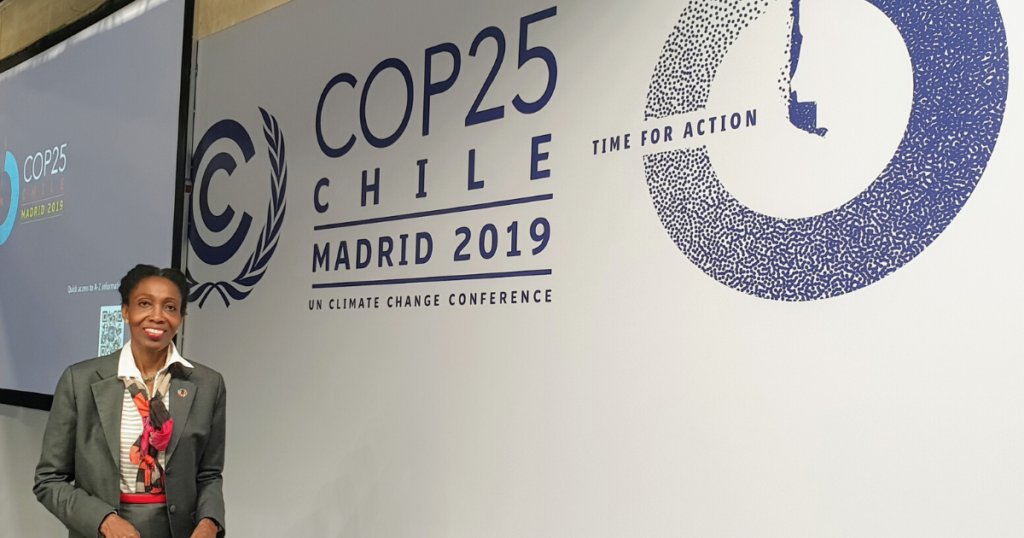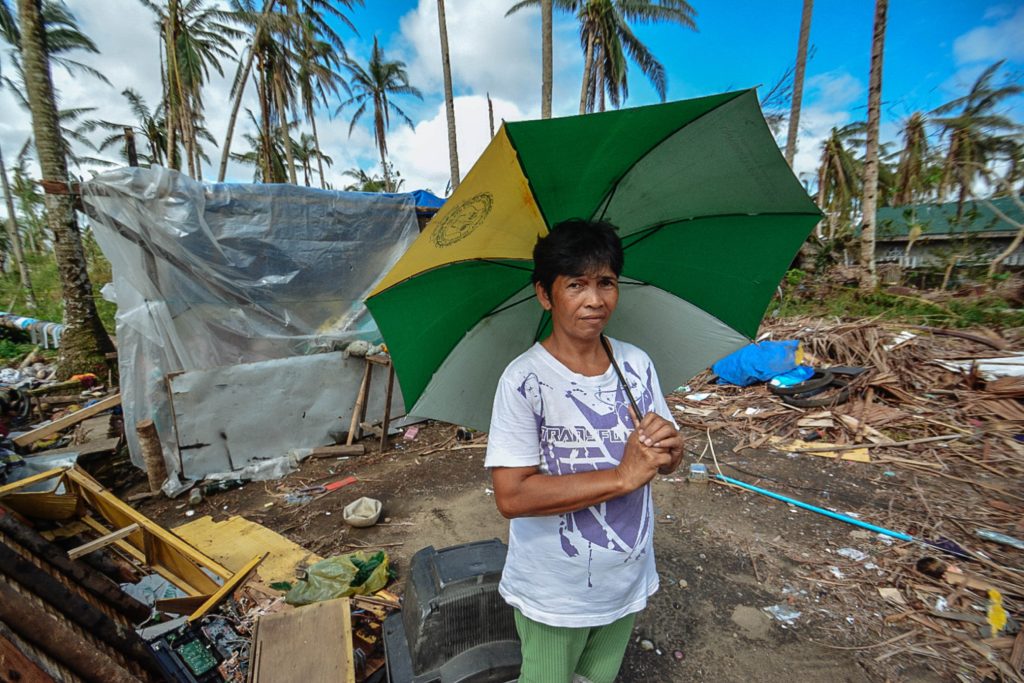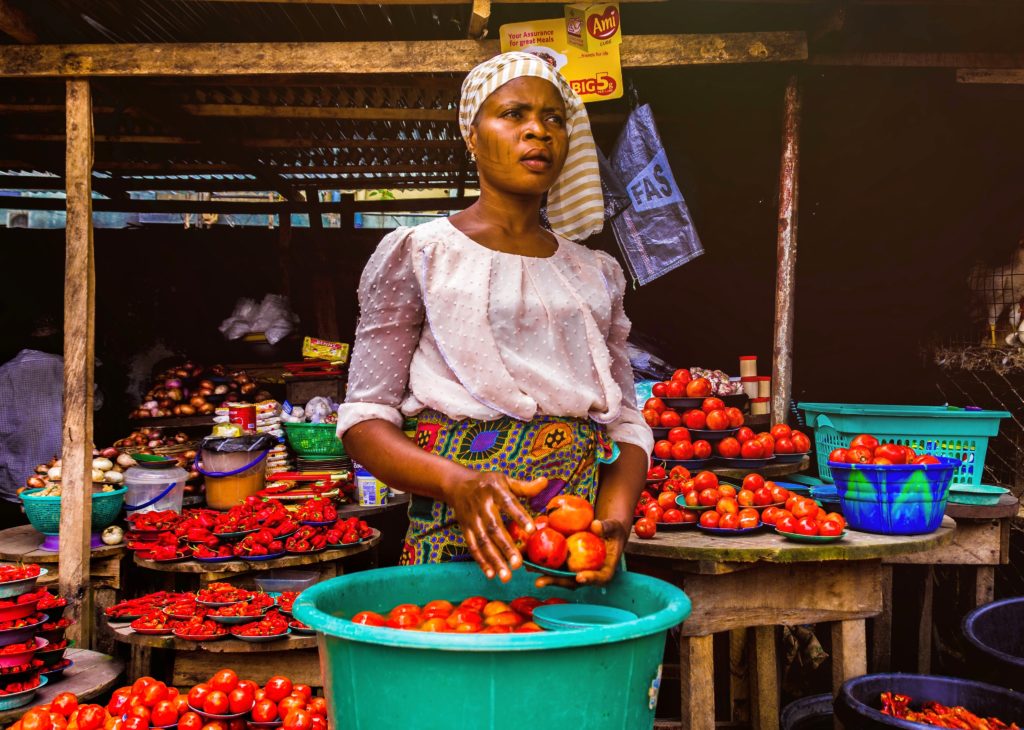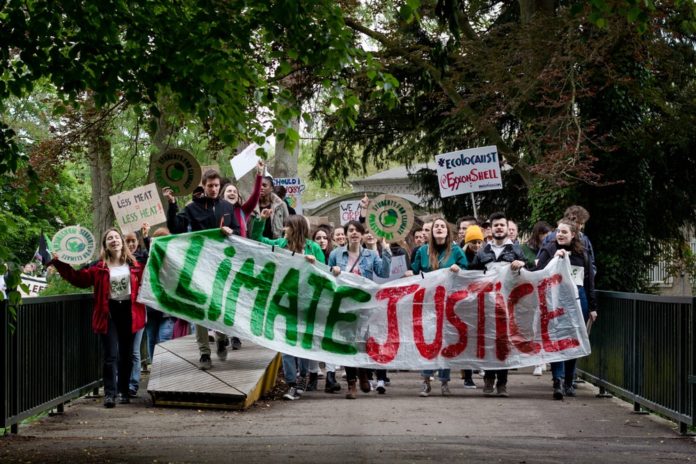The need for justice is embedded in both climate change and gender issues.
I sat with the illustrious Dessima Williams, Champion for the Caribbean Natural Resources Institute (CANARI), at the UNFCCC’s COP25 in Madrid today to speak about the inextricable link between climate justice and gender justice.

Uneven distribution of resources
It is a fact that the climate change burden is unevenly distributed, and so are the resources to ease the strain of climate change-induced losses and damages.
For some, climate change remains a distant rhetoric, a hoax. For the developing world, however, it is a harsh and undeniable daily reality. For instance: According to the Climate Studies Group of the University of the West Indies (Mona Campus), rainfall patterns are changing in the Caribbean, which have translated into more storms in the northern Caribbean and more droughts in the southern Caribbean.
The history of the Caribbean region has contributed to various forms of inequality. The unsweetened truth is that in the Caribbean, institutions reinforce and reflect pre-existing inequality, despite commitments made to equality and human rights.
Those who have the least responsibility must not be made to suffer compared to those who have the responsibility for creating the issue of climate change. There needs to be a balance of resources and representation. As Dessima stressed, “those who need recourse should have that. Women have historically had an unfair shake in the world and therefore the need to balance out the scales is there and this need has to be recognised by those who have the power to address it.”
Gender roles prevent women from being climate resilient.
Most Caribbean societies have large percentages of women-headed households. According to Dessima, “In the case of Grenada and Jamaica, over 50% of the households are led by single women. Most of these households have economic challenges. They’re poorer than other groups in societies and are therefore at a higher risk in terms of the quality of their houses and the quality of their preparedness for when climate disasters strike.”
She added that these women in society are vulnerable as well because in addition they tend to not have the training, finances, and overall capacity to cope, far less to withstand, climate crises. These are the people who need to be helped. These are the people who negotiators at COP25 need to consider when delaying and fighting on the wrong side of the climate emergency struggle.

In addition to the instant impacts like hurricanes and flooding, Dessima reminds us that we need to consider slow-onset climate change impacts, such as drought, increased presence of vector borne diseases, food insecurity, and increased food prices. These households usually comprise of small children and the woman may have to provide for her children as well as aging parents.
It is an additional financial burden for this sector of the population.
“When there is a crisis, these women don’t have the economic buffer, the resources needed to protect themselves and their family. Women in the Caribbean, on average and toward the lower end of the economic spectrum, are at a greater risk of not surviving the climate emergency, because of the traditional gender roles they are burdened with.”
Dessima added that women are the majority in the hospitality sector and when hurricanes hit and hotels are destroyed, many women end of jobless. The fact that women are economically expedient in the Caribbean is not always visible in the Caribbean but it is the reality. Because of this, we need to focus efforts on scaling up our understanding of gender inequality and how that is linked to climate justice. In responding to climate, whether it is around water, food, transportation, migration, it is important to remember these women.
Providing for women’s needs
Women have special needs even when it comes to going to a shelter. These women who are singly leading the family, have to see about their children in shelters that are not well equipped to deal with their needs. Many shelters in the Caribbean are just one open space with no space for changing babies, no space for menstruating women, and no separation for families. We need to be more sensitive and bring more women to the decision making table at every level.
“I don’t hear anything being spoken about the extra stress that is placed on women when there is no running water for weeks at a time,” Dessima lamented. Where is the public funds to facilitate the special needs of women when disaster strikes?

Caribbean leadership must act on gender-sensitive climate policies
In the Caribbean, we do need climate adaptation projects, but what about the gender element? Is this being included in an effective way?
Dessima informs us that there is a gap between climate policies and gender mainstreaming in the Caribbean. Leaders need to acknowledge this gap and put measures in place to close it. This could include, for instance, capacity building on the intersectionality of gender and climate change for leaders of civil society organisations.
Gender mainstreaming is needed in the Caribbean climate change policies as well as women need to be given the decision making power.
Dessima drew attention to CANARI, which is a leading regional environmental institution. They are a great example of an organisation in the Caribbean currently working on climate change projects across the region and including gender in every aspect. They believe in the culture of gender responsiveness and sensitivity. On the ground, they are partnering with women in communities, forming a model for implementing gender sensitive projects to build climate resilience.
Acknowledge the challenges and address them
Knowledge and commitment. These are some of the key hurdles Dessima identified that the Caribbean faces when it comes to gender mainstreaming in climate policies. Training needs to be done for those who are vulnerable as well as though who are carrying out the climate projects. In addition, we need commitment from policymakers to mainstream gender equity. How is public expenditure directed to women’s lives? Women’s needs must be facilitated in public expenditure.
With a little more of a lens on inclusiveness and equality, we will improve the conditions for all groups in society.
Trying to fix the climate change issue without including the gender element is not a holistic approach to the problem. Helping women is helping the families, the communities, the schools, and the entire world.



















